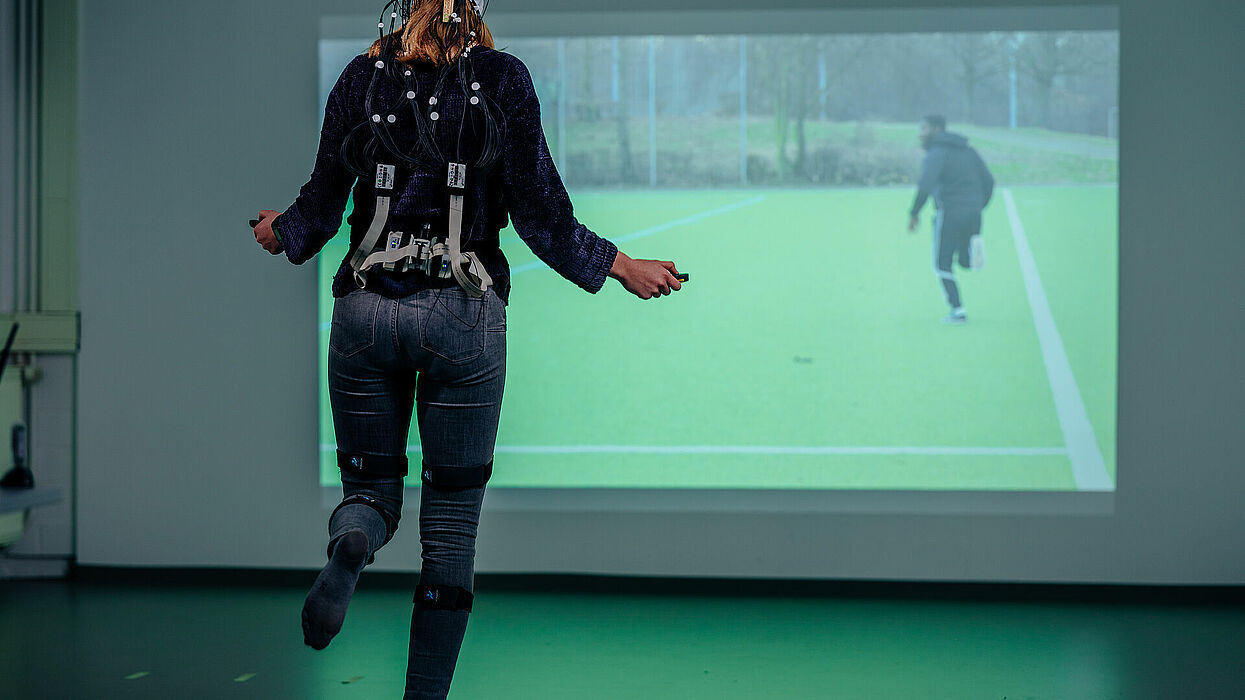Healthy ageing is becoming an experience - literally in the blink of an eye: We are talking about sporting activities in front of the screen, or more precisely, so-called exergames. These are interactive video games that combine physical exercise with playful elements, often using a joystick or controller. They promote fitness and train cognitive skills and are already increasingly being used in rehabilitation centres. Scientists at Paderborn University have now scientifically confirmed their influence, particularly on the performance of older people.
Areas of the brain responsible for cognition are stimulated
"Our studies show clear cortical activity when using exergames. We measured the brain waves of older people aged between 70 and 84 using electroencephalography (EEG) and observed significant activations - primarily in the frontal brain area. This indicates that exergaming not only promotes physical fitness, but also stimulates areas of the brain that are particularly important for cognition. Regardless of the type of game or the level of difficulty," explains Prof Dr Jochen Baumeister, Head of the "Training and Neuroscience" department at Paderborn University.
Customised offers and settings are necessary
In computer or video games, users have to move around to score points or reach the next level. "Exergames" is a combination of the English terms for video games ("gaming") and sport ("exercise"). Players either hold portable devices in their hands that capture their movements or are placed in the digital environment on the screen via a camera. The sports range from rather simple activities such as fishing to more complex Zumba units. Baumeister's team has identified a correlation between the complexity of the games and the intensity of the movements: "As the level of difficulty increases, we have observed a significant decrease in physical activity. This emphasises the need for individually adapted game settings for older players."
Healthy ageing through gaming
According to Baumeister, the overall results suggest that exergaming could prove to be a valuable tool for healthy ageing: "In addition to the (neuro)physiological adaptations, it is important to motivate older people to exercise in the first place - and ideally in a safe environment. According to the motto 'fun and function', video games fulfil both needs. This shows the great potential they can have for fitness and mental health in old age. Furthermore, the senior citizens showed no fear of contact with the technology." "However," the scientist continues, "exergames should be adapted to the abilities and training goals of older players in order to optimise the cognitive and physical stimuli. In future, this could be done on the basis of individual brain activity, for example."
The research project was supported by the German Academic Exchange Service (DAAD) and carried out in cooperation with the Norwegian University of Science and Technology (NTNU) in Trondheim.
This text has been translated automatically.


